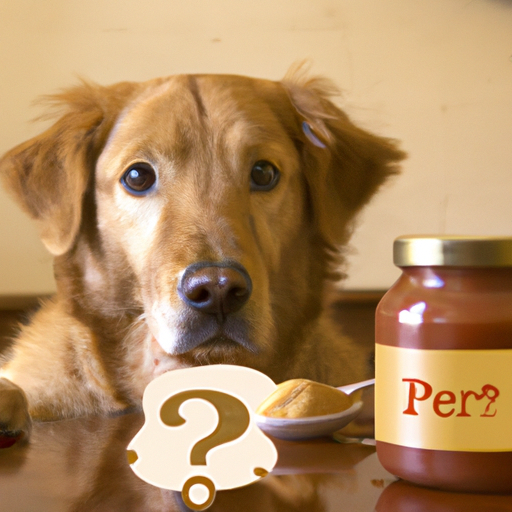As a caregiver to your furry friend, you may often find yourself wondering about what’s safe for your dog to eat. One common question is about peanut butter. When can dogs have peanut butter? It’s a tasty treat for us humans, but can our canine companions also partake? Let’s dive into this topic, exploring when it’s safe, what to avoid, the risks, the benefits, and some frequently asked questions.
The Basics: Can Dogs Eat Peanut Butter?
Yes! Dogs can have peanut butter. In fact, it’s often used as a treat during training or given as a supplement. However, it’s important to remember that not all peanut butters are created equal. Some can be harmful to your dog.
What to Look Out for When Choosing Peanut Butter for Your Dog
When choosing peanut butter for your dog, avoid any brands that contain the ingredient xylitol. Xylitol is a sugar substitute often used in foods to keep the sugar content down, but it’s extremely toxic to dogs. Even small amounts can cause hypoglycemia (low blood sugar), seizures, liver failure, or even death in dogs.
| Ingredients to Avoid | Why |
|---|---|
| Xylitol | It’s toxic to dogs and can lead to serious health problems. |
| Added sugars | Can lead to obesity, dental health issues, and diabetes. |
| High sodium content | Can lead to increased thirst and urination. Over time, it can contribute to heart disease. |
The Risks of Feeding Your Dog Peanut Butter
While peanut butter can be a great treat for dogs, it does come with some risks. Here are a few things you should be aware of:
- Choking hazard: Especially for smaller dogs, a large glob of peanut butter can be a choking risk. Always monitor your dog while they’re enjoying this treat.
- Allergies: Though rare, dogs can be allergic to peanuts. Watch out for symptoms such as itching, swelling, sneezing, hives, and difficulty breathing.
- Obesity: Peanut butter is high in fat and calories. Feeding your dog too much can lead to obesity and related health issues.
- Pancreatitis: The high fat content can also lead to pancreatitis, especially in dogs who are prone to this condition.
The Benefits of Feeding Your Dog Peanut Butter
Despite these risks, peanut butter can be a healthy treat for your dog when given in moderation. Here are a few benefits:
- Protein: Peanut butter is a good source of protein, which is essential for building and repairing body tissues.
- Healthy fats: The monounsaturated fats in peanut butter can help keep your dog’s coat shiny and healthy.
- Vitamins and minerals: Peanut butter contains Vitamin E, Vitamin B6, niacin, and magnesium, which can contribute to your dog’s overall health.
Frequently Asked Questions
Q: How much peanut butter can I give my dog?
A: As a general rule, dogs should not consume more than 10% of their daily caloric intake from treats or snacks. For a 30-pound dog, this is about a tablespoon of peanut butter.
Q: Can puppies eat peanut butter?
A: Yes, puppies can have peanut butter. However, it’s important to introduce any new food slowly to watch for signs of allergies or upset stomach.
Q: Can I give my dog peanut butter every day?
A: While it’s safe for dogs to have peanut butter, it should be given in moderation due to its high fat and calorie content.
Q: What should I do if my dog eats peanut butter with xylitol?
A: If your dog ingests peanut butter containing xylitol, contact your vet or an emergency pet poison hotline immediately.
Remember, as a caregiver, it’s your responsibility to ensure the health and safety of your furry friend. When given responsibly, peanut butter can be a fun and nutritious treat for your dog. Just be sure to choose wisely and always keep an eye out for any adverse reactions.



